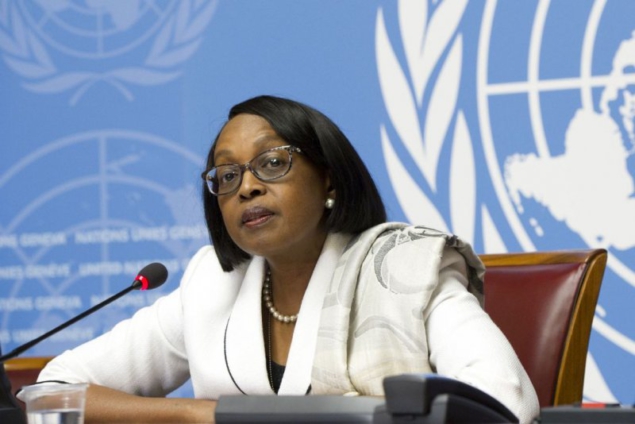The World Health Organisation (WHO) has revealed that climate-related health emergencies are on the rise in Africa, accounting for more than half of public health events recorded in the Region over the past two decades.
A new analysis by the international body found that of the 2,121 public health events recorded in the African region between 2001 and 2021, 56% were climate-related.
The Region is witnessing an increase in climate-linked emergencies, with 25% more climate-related events recorded between 2011 and 2021 compared with the previous decade.
On the commemoration of the ‘World Health Day’ on April 7, the WHO has called on governments to, among other recommendations, prioritise human well-being in all key decisions, stop new fossil fuel explorations and subsidies, tax polluters and implement WHO air quality guidelines.
“Climate change is one of the greatest threats to humanity. The entire foundation of good health is in jeopardy with increasingly severe climatic events.
“In Africa, frequent floods, water- and vector-borne diseases are deepening health crises. Although the continent contributes the least to global warming, it bears the full consequences,” WHO Regional Director for Africa, Dr Matshidiso Moeti, said.
The WHO analysis found that water-borne diseases accounted for 40% of the climate-related health emergencies over the past two decades.
In Africa, diarrhoeal diseases are the third leading cause of disease and death in under 5 children.
A significant proportion of these deaths is preventable through safe drinking water, adequate sanitation and hygiene.
The analysis also showed that vector-borne diseases, notably yellow fever, accounted for 28% of the climate-related health emergencies, while zoonotic diseases, specifically Congo-Crimean haemorrhagic fever, were the third most prevalent.
Congo-Crimean haemorrhagic fever is a viral disease transmitted to people from ticks and livestock and has an outbreak fatality rate of up to 40%.
Natural disasters have also spiked dramatically since 2010, with 70% of all-natural disasters occurring between 2017 and 2021.
Floods were the most frequent event, accounting for 33% of all the reported natural disasters.
Africa is also grappling with other significant health impacts linked to climatic shocks including malnutrition and hunger due to adverse weather on agricultural production, long-term health and development challenges in children, as well as other infectious diseases such as malaria.
In Africa, climate change is likely to expand the range of malaria high-risk zones, according to a report by the Netherlands-based Global Centre on Adaptation.
Even though malaria mortality has decreased from 840 000 deaths in 2000 to 602 000 deaths in 2020, the disease remains a major health challenge on the continent.
The World Health Day is being marked under the theme, “Our Planet, Our Health.”
Latest Stories
-
The New Force issues apology over assault involving security guard
1 hour -
Colombia presidential hopeful shot in head at rally
2 hours -
Rwanda pulls out of regional bloc over DR Congo row
2 hours -
5 motorbikes, fufu pounding machine destroyed as fire guts mechanic shop at Kintampo
2 hours -
Suspect who attacked JoyNews’ Latif Iddrisu during Wontumi protest arrested
2 hours -
Gifty Anti honoured as Impactful Female Celebrity of the Year at inaugural Ghana Celebrity Impact Awards
2 hours -
Ghana Hajj Board confirms death of seven pilgrims in 2025 pilgrimage
6 hours -
Both governments are responsible for contributing to the country’s energy insecurity through financial debt
6 hours -
Israel is accused of the gravest war crimes – how governments respond could haunt them for years to come
7 hours -
Liberia’s ex-speaker charged with arson over parliament fire
8 hours -
Help protect oceans for sustainable future – Dr. Agyekumhene
9 hours -
Portugal vs Spain Nations League final preview
9 hours -
Trump-Musk row fuels ‘biggest crisis ever’ at Nasa
10 hours -
Sir Sam Jonah’s blueprint: 10 keys to transform Ghanaian youth into nation builders
10 hours -
Sir Sam Jonah calls for urgent STEM prioritisation to develop Ghana
10 hours

